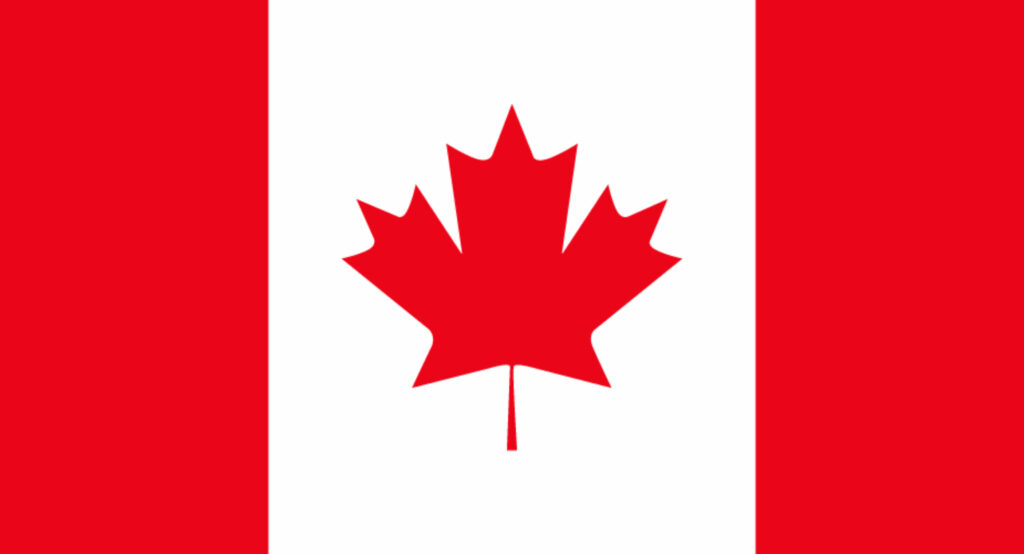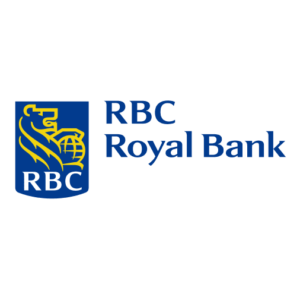CANADA

Our graduate programs go beyond mainstream thought and practices, fostering intellectual inquiry and creative mastery.
WHY STUDY IN CANADA
BENEFITS OF STUDYING IN CANADA
Quality of Education: Canada is renowned for its high-quality education system and rigorous academic standards. Canadian universities and colleges consistently rank among the best in the world.
Diverse and Inclusive Society: Canada is known for its multicultural environment and welcoming attitude toward international students. The country values diversity and promotes inclusivity, making it a comfortable and safe place for students from various cultural backgrounds.
Safe and Peaceful Environment: Canada is considered one of the safest countries in the world. Its low crime rates and peaceful communities make it an ideal place for students to focus on their studies without concerns about safety.
Work Opportunities: Canada provides opportunities for international students to work part-time during their studies and full-time during scheduled breaks. Additionally, after completing their studies, there are various programs and pathways for international graduates to obtain work and possibly become permanent residents.
Quality of Life: Canada consistently ranks high in global quality of life indices. It offers a high standard of living, excellent healthcare, and a clean and healthy environment.
Natural Beauty: Canada is known for its stunning landscapes, including mountains, lakes, and forests. Students can explore and enjoy the country’s natural beauty during their stay, providing a unique and enriching experience.
Innovative Research Opportunities: Canada is at the forefront of research and innovation. Many Canadian universities are actively involved in cutting-edge research, providing students with the opportunity to be part of groundbreaking projects.
English and French Language Opportunities: Canada is a bilingual country, with English and French as its official languages. Studying in Canada allows students to improve their language skills in either or both of these languages, providing a valuable asset in the global job market.
Global Perspective: Canadian institutions encourage a global perspective in education, often promoting international collaboration and a broad understanding of global issues. This prepares students to be global citizens and enhances their employability worldwide.
Post-Graduation Immigration Opportunities: Canada has favorable immigration policies for international students who wish to stay in the country after completing their studies. The Post-Graduation Work Permit (PGWP) allows graduates to work in Canada and gain valuable Canadian work experience.
EDUCATIONAL METHODOLOGY
Canadian Education System Has Been Divided Into Two Parts
1. University Based Education System
2. College Based Education System(community Colleges)
POPULAR COURSE
Canada offers a wide range of courses for international students. Some of the most popular courses in Canada are:
1. Computer Science and Information Technology
2. Business and Management
3. Engineering
4. Health Sciences and Nursing
5. Data Science and Analytics
6. Hospitality and Tourism Management
7. Media and Communication
8. International Relations and Political Science
These courses are offered by some of the top universities in Canada, such as the University of Toronto, University of British Columbia, University of Alberta and University of Calgary.
Difference Between Universities and Colleges in Canada ?
In Canada, the educational landscape consists of two main pathways: universities and colleges. However, it’s important to note that while these terms may bear resemblance to those used in the Indian/South Asian educational context, there are significant differences that can lead to misconceptions.
In Canada, universities and colleges serve distinct purposes and offer varied educational experiences. Universities typically focus on academic and theoretical learning, offering undergraduate and postgraduate degrees in a wide array of disciplines. They emphasize research, theoretical study, and academic exploration.
On the other hand, colleges in Canada often prioritize practical, hands-on training and vocational programs. They provide certificates, diplomas, and some degree programs that are more career-oriented and designed to equip students with specific skills for various professions.
Contrary to the terminology in India/South Asia, where colleges and universities might be more synonymous in terms of academic rigor and degree offerings, in Canada, the distinction lies in their educational approaches and program focuses.
| Parameter | University | Colleges |
| Program Offered | UG/PG and PhDs | Post secondary and post graduation diploma and certificate |
| Degree Offerings | Bachelors/UG and Masters/Graduate/PG |
|
| Duration | UG: 3 – 4 years Graduate: 1.5 – 2 Years | Certificates (1 year), Diplomas (2 years), Advanced Diplomas (3 years), Graduate Certificates (1 year), Graduate Diplomas (2 years) |
| Intakes | Fall(September), Winter(January) | Fall (September), Winter(January), Summer(May) |
| Approach | Research intensive approach | Industry and job market oriented |
| Program Focus | Broad spectrum within a field (e.g., Commerce, Engineering) | Specialized focus (e.g., Embedded Systems, Electronics Systems) |
| Tuition Fee Range | CAD 25-40K for Bachelor’s, CAD 25-75K for Master’s | CAD 12-25K |
| Work Permit | Up to 3 years post-completion for 4-year Bachelor’s or 2-year Master’s | Equivalent work permit duration based on program completion (1-3 years) |
| Scholarships | Numerous merit-based options available | Limited scholarships, but competitive tuition offsets this |
| Entry Requirements | Undergraduate: Percentage- 75%+ IELTS- 6.5 not less than 6 SOP and LORGraduate: Percentage- 75%+ IELTS-7 not less than 6.5 GRE and GMAT ( according to the course) | 60%+ IELTS- 6.5 not less than 6 No LOR & SOP is required |
LIST OF UNIVERSITY & COLLEGES
| Top Universities | Lesser Known University |
| University of Toronto | Brandon University |
| University of British Columbia | Canadian Mennonite University |
| University of Waterloo | Memorial University of Newfoundland |
| McGill University | University of Western Ontario |
| York University | University of Prince Edward Island |
| Mc Master University | University of Winnipeg |
| Simon Fraser University | University of New Brunswick |
| University of Alberta | The University of St. Paul |
| Carleton University | Trent University |
| HEC Montreal | Lakehead University |
| University of Calgary | Cape Breton University |
| Top Colleges | Lesser Known Colleges |
| Seneca College | Bow Valley College |
| George Brown College | Medicine Hat College |
| Humber College | Herzing College |
| Centennial College | Algonquin College |
| Fanshawe College | Northern Lights College |
| Durham College | Lethbridge College |
| Sheridan College | Selkirk College |
| Conestoga College | Okanagan College |
SCHOLARSHIPS
Canadian universities offer a variety of scholarships and financial aid options to international students. Some of the popular scholarships available for international students in Canada are:
- Foundation Scholarships
- Carleton Prestige Scholarships
- FDU International Scholarship
- Vanier Canada Graduate Scholarships
- IDRC research awards
- Trudeau Foundation Scholarships
In addition to these scholarships, many universities in Canada offer their own scholarships and financial aid programs to international students. It’s always a good idea to check the specific universities website for information on scholarships and financial aid.
POST STUDY WORK VISA
The Post-Graduation Work Permit (PGWP) in Canada stands as a significant opportunity for international students who’ve finished their studies at an accredited Canadian educational institution.
The key aspects of the PGWP:
1. Eligibility: Completion of a program lasting a minimum of eight months at a Designated Learning Institution (DLI) in Canada is a prerequisite for PGWP eligibility.
2. Duration: The PGWP permits employment in Canada for a duration equivalent to the length of the study program, with a maximum cap of three years. For example, a two-year program could grant eligibility for a two-year PGWP.
3. Job Flexibility: Unlike certain visas, the PGWP doesn’t mandate a prior job offer for application. It allows work with any employer across Canada.
4. Application Timeline: Applicants must apply for the PGWP within 180 days of receiving official confirmation (such as transcripts or an official letter) from their institution regarding successful program completion.
5. Pathway to Permanent Residency: Accumulating Canadian work experience through the PGWP can bolster opportunities for permanent residency under specific immigration programs.
6. Designated Learning Institution (DLI): It’s crucial to attend a recognized DLI to qualify for the PGWP, as not all educational institutions in Canada meet this criterion.
7. Regulatory Updates: As immigration policies evolve, staying informed about changes is vital, as they can influence eligibility and application procedures.
The PGWP offers international students a chance to gain significant work experience in Canada post-studies, potentially paving the way for permanent residency. However, it’s essential to thoroughly understand the eligibility criteria and application protocols specified by Immigration, Refugees, and Citizenship Canada (IRCC) for a successful application.
Type of Visa
- SDS Visa (student direct stream)
- Non-SDS Visa
| Parameter | SDS | Non-SDS |
| Eligible Countries | Limited list of countries (varies by region) | All countries |
| Financial Requirements | Proof of payment for the first year’s tuition fees, Guaranteed Investment Certificate (GIC), IELTS: 6 in each skill, overall 6 | Variable financial proofs, might include tuition, living costs, etc. |
| Language Proficiency | Higher English language proficiency (IELTS: 6 in each skill, overall 6) | Language proficiency requirements might vary |
| Upfront Medical Examination | Required | Might be required |
| Might be required | Faster processing times compared to Non-SDS | Processing times might vary |
| Educational Institution | Limited to participating institutions; the program and institution must be on the DLI list | Can apply to any Designated Learning Institution (DLI) |
| Funds of Living Expenses | Proof of funds required as per the Canadian government’s specified amount for living expenses | Proof of funds required as per the Canadian government’s specified amount for living expenses |
| Application submission | Specific checklist and application format | Application process might vary based on the institution |
| Work Permit Processing | After program completion and during the PGWP application, certain rules apply | Similar work permit application rules |
Visa Process
For international students aspiring to study in Canada, obtaining a student visa involves several essential steps:
1. Selecting a University and Course: The initial step is to decide on the university and course that align with your educational goals in Canada.
2. Applying to the Chosen University: After finalizing your university and course, proceed to apply directly to the institution. Securing an acceptance letter from the Canada university is crucial.
3. Compiling Required Documents: To complete the student visa application, gather the following necessary documents:
- Valid passport
- Completed visa application form
- Acceptance letter from the chosen Canada university
- Proof of adequate financial resources to cover living expenses and tuition fees
- Health insurance coverage
- Certificate confirming a clean criminal record
- Passport-sized photographs
4. Submitting the Visa Application: Visit the nearest Canada embassy or consulate in your home country to submit your visa application. It’s important to schedule an appointment and fulfill the visa processing fee.
5. Awaiting Decision: The duration for visa processing can vary depending on the applicant’s home country and the current embassy workload. Contact the embassy or consulate for estimated processing times.
6. Visa Collection: Upon approval, collect the granted visa from the embassy or consulate within the stipulated time frame.
Keep in mind that visa application processes might differ among countries, so it’s advisable to consult the nearest Polish embassy or consulate for specific guidelines and any country-specific requirements.
TOP COMPANIES










Canada has a thriving economy and is home to several top companies across various industries. Some of the top companies in Canada are:
Enbridge- Enbridge is a large energy supplier and pipeline operator.
Canadian Natural Resources- Canadian Natural Resources is a major oil and gas and mining company based in Calgary, Alberta.
RBC Royal Bank- The Royal Bank of Canada (RBC) is the largest bank in Canada by asset value.
Shopify- Shopify is a Canadian-based multinational e-commerce company.
Scotiabank- If Canadians or foreign investors are looking for a good stock to buy, Scotiabank is always a good idea to start considering.
CN- The Canadian National Railway Company is a Class I freight railway, founded in 1919 and headquartered in Montreal.
Canadian Pacific- Canadian Pacific Railway official website, the company is at the forefront of predictive analytics for locomotives, railcars and track.
TC Energy Corporation- TC Energy has proudly operated pipelines, storage facilities and power-generation plants that support life in Canada, the U.S. and Mexico.
Nutrien- It is the largest producer of potash and the third largest producer of nitrogen fertiliser in the world.
Imperial Oil- Canada is one of the world’s largest producers of oil and gas and ranked in the top five for crude oil and natural gas.
How to Apply?
- You Apply
Tell us a little about yourself and we’ll help with the rest. Our convenient online application tool only takes 10 minutes to complete.
- We Connect
After you submit your application, an admissions representative will contact you and will help you to complete the process.
- You Get Ready
Once you’ve completed your application and connected with an admissions representative, you’re ready to create your schedule.
